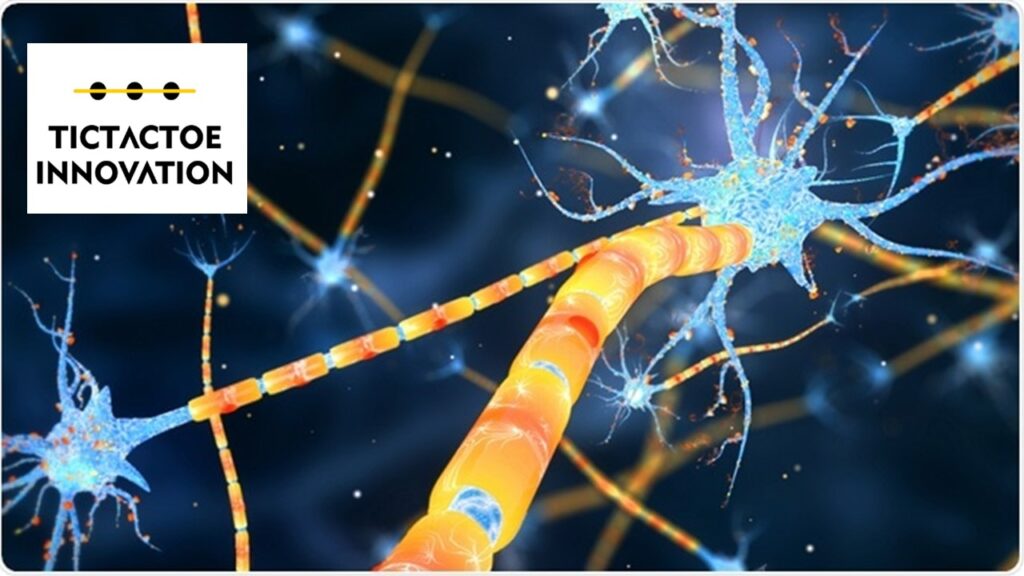I am going to attempt to make something complicated easy. Something easy to digest by people like us, people without a medical background. Warning: I may sprinkle in some engineering along the way. My intention is to share something important I have learned that I hope is useful to you and to the people around you.
Neurons serve as the bridges between our thoughts and actions, connecting all the signals in our brain. When we learn or generate new ideas, it’s these neurons that facilitate the connections. The faster they connect, the faster we can think of new ideas , the faster we can remember a name, the faster we can learn a new skill, and more.
Neurons are equipped with branches known as dendrites, which capture electrical signals carrying thoughts and feelings. These dendrites spread out to efficiently gather incoming signals. Neurons also have a main wire called the “axon,” responsible for transmitting signals from the dendrites to the axon terminal. From there, the information is passed on to another neuron or another cell.
The axon is covered with myelin, which increases the speed of signal transmission. Myelin is formed by fatty acids which gives it a white hue, hence the reference to the brain’s white matter. Its primary function is to insulate the axon, preventing the idea/impulse from leaving the axon, therefore enhancing signal conduction. Myelin sheath is fundamental for brain health and cognition development through one’s lifetime. Basically, Myelin’s role is to convert the little road traveling from one side of the neuron to the other into a superhighway.
“A well myelinated brain signal travels over 100 times faster than an unmyelinated brain signal. When we learn a new skill, the connection between neurons is weak. Mastery occurs when those neural connections are constructed into freeways by the accumulation of myelin” Rishi Sriram
Let’s Myelinate those Neurons!
When we encounter challenges while learning something new or solving a difficult problem, brain signals navigate through the pathways of neurons. Initially, these signals may not travel swiftly enough. However, through repeated practice and guided by feedback from previous attempts, the brain recognizes the need for faster transmission. In response, it produces myelin, enabling faster transmission signals and facilitating smoother learning and problem solving.
In a neuroscientific study, one group of kids was assigned the task of hitting a target three feet away, while another group was assigned to hit a combination of targets that were two feet or four feet away. After 12 weeks of practicing, the team which practiced with two-feet and four-feet targets performed consistently better than those who had practiced with the three-feet target, even though three feet was the distance used in the tossing competition.
The reason for the better performance is that the additional difficulty experienced by the winning team during practice forced the production of myelin and the creation of stronger neural paths (the highway). They had grown in mastery.
Some behaviors that will enable myelin production and stronger neural pathways:
1- Learn something new. Make sure you are always challenging yourself and struggling in your learning and growth. No pain no gain. If you manage people, make sure every employee is also always learning something new.
2- Space your moments of deep learning/focus. Behavioral science shows that we should focus for spaces of 1hr to maximize our task attention to learn and solve the problems while we keep the default attention working for us in the background.
3- Exercise. In a recently published article in Biochimicaet Biophysica Acta (BBA) Molecular Basis of Disease, Isobel A. Scarisbrick, Ph.D., the director of the Neuroregeneration and Neurorehabilitation Laboratory at Mayo Clinic’s campus, found that exercise training in combination with a Keto diet increases myelin. A healthy nutrition has also shown repeatedly to help myelin production.
4- Mindfulness. Taking a few minutes to connect with yourself and focus on the present moment has shown it can stimulate myelin production and increase neuron connectivity.
So, what are you learning these days? Are you challenging yourself enough??
Diana Escoda

